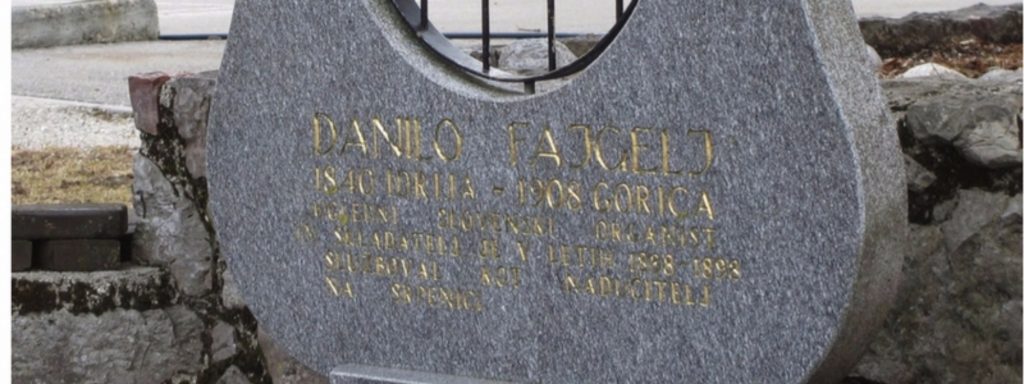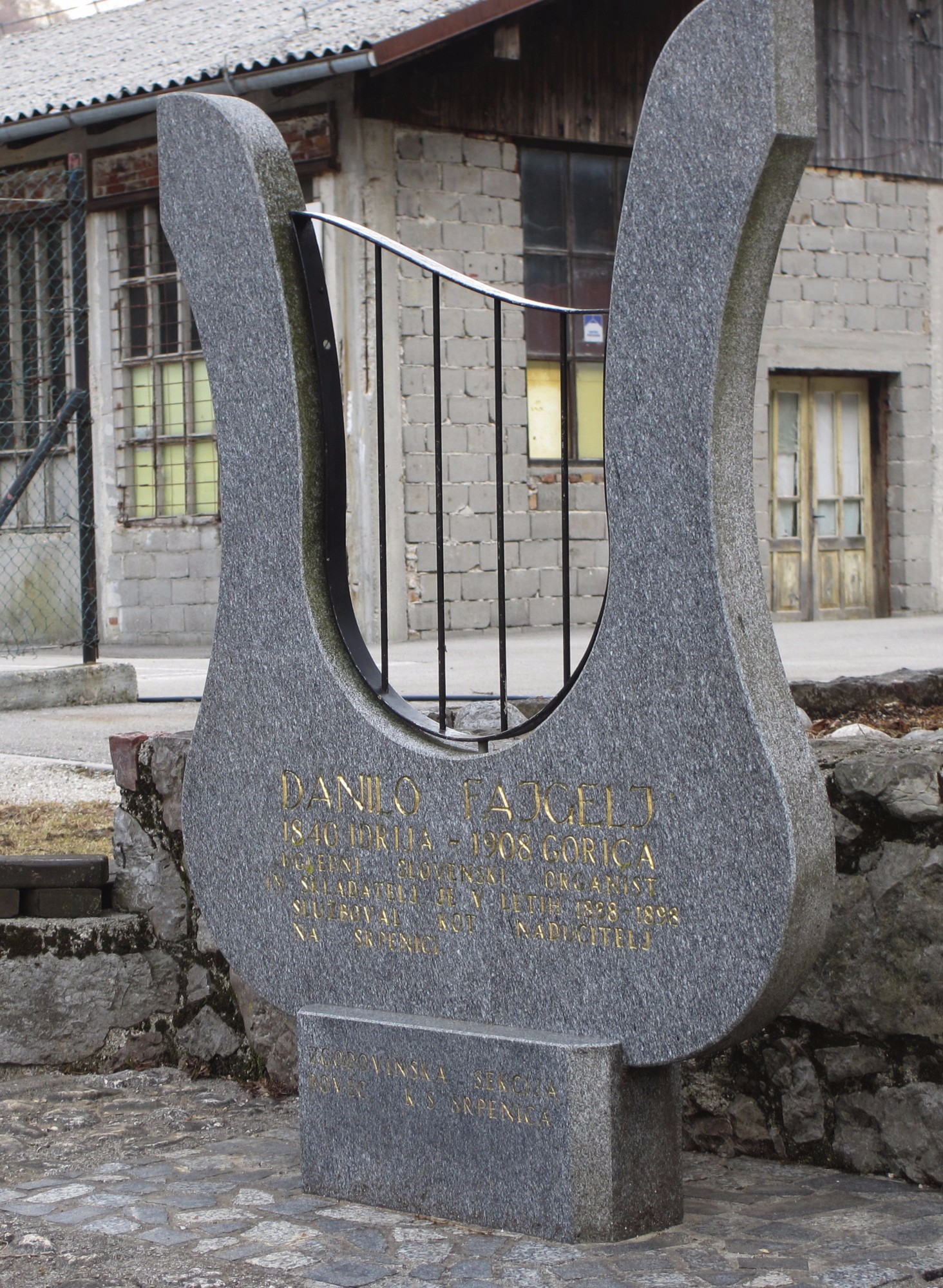In 2002, the Historical Section Bovec and the Local Community Srpenica had a memorial of Danilo Fajgelj erected next to Srpenica village church. Made of stone and metal, the sculpture is in the form of a harp. The gilded inscription reads:
“Danilo Fajgelj
1840 Idrija–1908 Gorica (Gorizia)
The distinguished Slovenian organist and composer worked in Srpenica as a school headmaster between 1888 and 1898.
Historical Section Bovec, LC Srpenica”
The sculptor is unknown.
Danilo Fajgelj
Danilo Fajgelj (1840–1908), an acknowledged musician from the Slovenian Primorska region (Littoral), was a teacher, organist and composer, who, as an ardent proponent of the Caecilian movement and autodidact, espoused a musical style that complied with the church music reforms. As simplicity of musical composition was favoured in Fajgelj’s time, and this characteristic was held in high regard, he was able to easily adapt his musical inspiration to the limited range of ability of provincial church ensembles. He also applied himself to secular music, writing choral works for the ensembles of Reading Rooms and the Glasbena matica Music Society. As an active member of the Glasbena matica Society he devoted himself to collecting folk songs in cooperation with the composers Ivan Laharnar and Ivan Kokošar, who helped him compose his numerous church choral songs. He also wrote music criticism, in which he aired his rather harsh opinions.
Working mainly as a teacher and organist in Bučka, Trata, Zali Log, Tolmin and Srpenica, Fajgelj directed his spare energies and time into composing religious music. He developed an idiosyncratic style in both Slovenian and Latin liturgical vocal idioms, and organ music. His works, including numerous church songs, fugues, preludes, 19 offertories, Latin and Slovenian masses, and motets, were published in Cerkveni glasbenik (Church Musician).
The music aesthetic of Fajgelj’s time – the late nineteenth century – was marked by the national awakening and Caecilian movements, which stressed the importance of simpler musical invention in order to prevent novelties reducing the intelligibility or meaning of texts. In his music texture, Fajgelj drew more on the German polyphonic chorale of the seventeenth and eighteenth centuries and the work of J.S. Bach, rather than seeking inspiration in the tradition of sixteenth-century polyphony.
These musical elements are most noticeably voiced in his Sveta maša (Sacred Mass), a work that met with the approval of the board of the Glasbena matica Music Society and earned him an award for being based on a Slovenian text and having considered the limited performance abilities of provincial choirs. Apart from Sveta maša, his notable works include Slovenski orglavec (Slovenian Organist), a collection of preludes that, despite its subsequent popularity, received considerable criticism when first published, in 1879, for its supposedly simple and “unskilful” language.
Although with composer Anton Foerster strivings emerged in Slovenia for a return to the origins of liturgical music, that is to say, the reintroduction of Latin texts, Fajgelj dedicated himself to a more moderate reform – to Slovenian music creativity, an output that was appreciated for years to come. He championed it by setting Slovenian religious texts to music, which he published in Cerkvena pesmarica (Church Songbook) for primary schools and thus significantly contributed to young people’s participation in music performance.
Maia Juvanc

